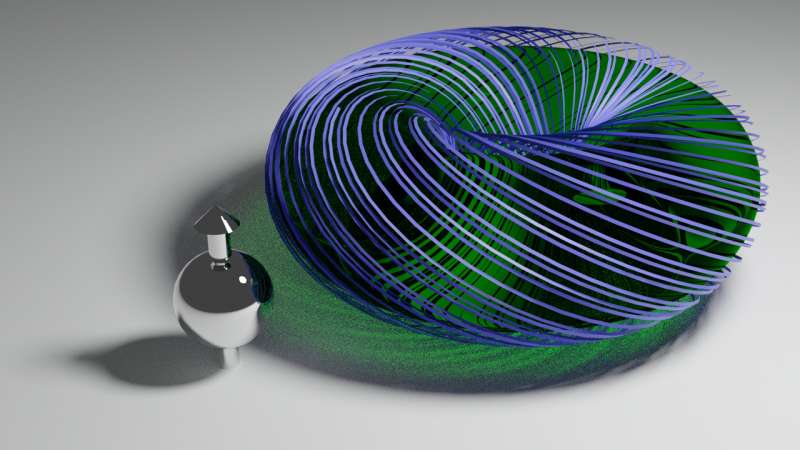Helping symmetric quantum systems survive in an imperfect world

Symmetry principles of classical physics that help keep our solar system stable have an intriguing counterpart in the quantum world, according to new research by a team of physicists from Australia, Italy and Japan.
In everyday life, symmetry is often associated with the idea of beauty. This is equally true in physics, where it relates to the concept of conserved quantities (such as the conservation of energy, meaning energy cannot be created or destroyed). These laws tell us that nature will behave tomorrow much as it behaved yesterday: the earth will continue to rotate around the sun in a stable predictable motion.
But in the real world, symmetries are frequently imperfect and outside influences have an impact on them. In the solar system, the earth's motion is perturbed by the weak gravity of thousands of other bodies. Motivated by questions like these, Kolmogorov, Arnold and Moser showed in the 1960s that certain types of motion enjoy eternal stability against these outside forces, meaning that the earth's orbit will remain stable into the far future. This stability proof is a milestone in classical mechanics and permeates a number of concepts in physics.
Now, collaborators from Macquarie University, Sydney and the University of Bari and Waseda University, Tokyo have identified similar behavior in the dynamics of quantum systems such as atoms and molecules with imperfect symmetry.
In a paper published in the journal Physical Review Letters, the team has established rules for when the same kind of stability first defined in the 1960s can be relied on in the quantum world.
According to lead author Macquarie University's Associate Professor Daniel Burgarth, "There is a formal distinction between fundamental, robust symmetries and accidental, fragile ones. The robust symmetries are cornerstones in quantum physics which we can depend on in designing quantum devices. Other symmetries are easily perturbed, and give a quantum system more freedom to undergo unpredictable, and usually undesirable, behavior."
Professor Kazuya Yuasa (Tokyo) explains, "Every quantum system is weakly coupled to numerous others. The whole program of quantum engineering today is about finding ways to constrain the evolution of quantum systems, and prevent the dissipation of information from highly sensitive quantum states. By clarifying exactly which types of symmetries are most insensitive to this decay we hope to identify design strategies for more robust quantum computing, both in hardware and software."
More information: Daniel Burgarth et al. Kolmogorov-Arnold-Moser Stability for Conserved Quantities in Finite-Dimensional Quantum Systems, Physical Review Letters (2021). DOI: 10.1103/PhysRevLett.126.150401
Journal information: Physical Review Letters
Provided by Macquarie University




















